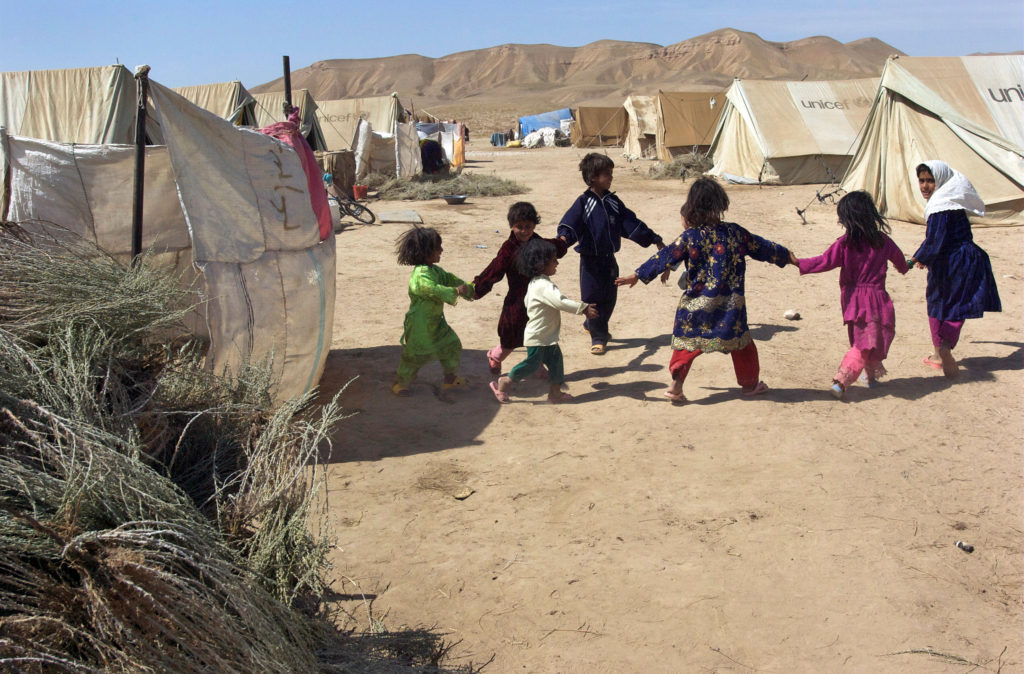- Courses
- GS Full Course 1 Year
- GS Full Course 2 Year
- GS Full Course 3 Year
- GS Full Course Till Selection
- Answer Alpha: Mains 2025 Mentorship
- MEP (Mains Enrichment Programme) Data, Facts
- Essay Target – 150+ Marks
- Online Program
- GS Recorded Course
- Polity
- Geography
- Economy
- Ancient, Medieval and Art & Culture AMAC
- Modern India, Post Independence & World History
- Environment
- Governance
- Science & Technology
- International Relations and Internal Security
- Disaster Management
- Ethics
- NCERT Current Affairs
- Indian Society and Social Issue
- NCERT- Science and Technology
- NCERT - Geography
- NCERT - Ancient History
- NCERT- World History
- NCERT Modern History
- NCERT Medieval History
- CSAT
- 5 LAYERED ARJUNA Mentorship
- Public Administration Optional
- ABOUT US
- OUR TOPPERS
- TEST SERIES
- FREE STUDY MATERIAL
- VIDEOS
- CONTACT US
Managing a Complex Humanitarian Crisis
Managing a Complex Humanitarian Crisis

Scenario:
You are the mission leader of an international humanitarian relief operation deployed to a conflict-ridden border region. The area is reeling under a multifaceted humanitarian emergency marked by:
- Prolonged ethnic conflicts
- Mass displacement of over 1.5 lakh people
- Severe food, water, and medical shortages
- Widespread child malnutrition
- Breakdown of local infrastructure and governance
- Hostile terrain and extreme environmental challenges
Relief efforts are frequently disrupted due to sporadic armed clashes. Militant groups block supply routes, and there is deep distrust among the local population toward external aid agencies. Your team is experiencing high stress, fear, and internal disagreements about whether to continue the mission amidst safety concerns.
Q. In such trying circumstances, what would be your ethical and administrative response? What qualities are essential for a public servant to handle such a crisis?
Solution:
A. Ethical and Administrative Response Framework
1. Cognitive Response (Ethical Reasoning):
- Apply Kantian ethics (categorical imperative)—uphold human dignity and alleviate suffering.
- Adopt Utilitarian approach—maximize relief benefits while minimizing risks.
- Strike a balance between mission objectives and team safety.
- Make compassionate but prudent decisions based on risk analysis and humanitarian needs.
2. Affective Response (Emotional & Moral Conduct):
- Demonstrate courage and compassion in adversity.
- Maintain empathy for victims and morale of relief workers.
- Show emotional resilience and manage fear and fatigue.
- Practice cultural sensitivity and build local trust.
- Display emotional intelligence in team dynamics.
3. Behavioral Response (Action-oriented):
i. Leadership Actions:
- Provide clear direction and decisive leadership.
- Build team cohesion, resolve internal conflicts.
- Act as a cultural bridge between teams and locals.
- Implement risk mitigation strategies.
ii. Operational Management:
- Optimize resource use under constraints.
- Enforce security protocols and protect convoys.
- Establish effective communication within teams and with locals.
- Ensure uninterrupted supply chains and safety frameworks.
iii. Ethical Implementation:
- Adhere to humanitarian principles—neutrality, impartiality, and humanity.
- Ensure transparent and fair aid distribution.
- Build trust through ethical conduct and cultural respect.
B. Essential Qualities in a Public Servant
|
Ethics & Integrity |
Aptitude & Skills |
Emotional Intelligence |
|
|
|
These traits ensure effective service delivery, uphold humanitarian ethics, and maintain personal integrity under adverse conditions.



